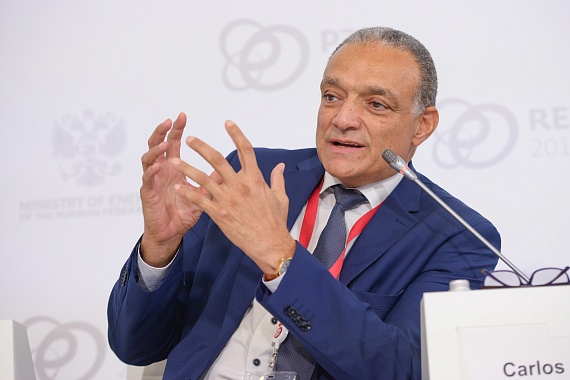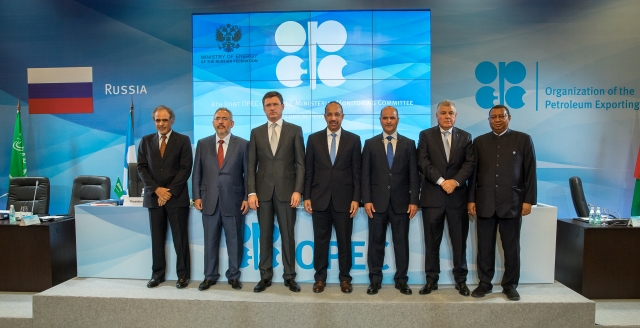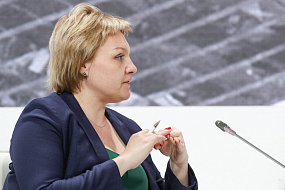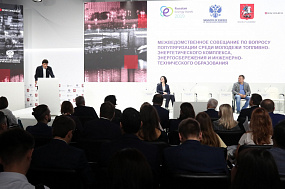Strengthening International Alliances for the Localization of Waste-to-Energy Solutions

KEY CONCLUSIONS
More waste poses a threat to future generations
“By 2050, there will be a total
of 3 billion tonnes of waste per year. This is a big challenge for future
generations. And we must do everything to solve this problem. Because if you
take a traditional approach to solving this problem, it won’t work. We need to
move to a closed-loop economy. This is precisely the reason why UNIDO is
working on starting this process and reducing the amount of waste so that as
few dumps and landfills as possible appear. We need a wide range of
participants, who can truly make a difference with their joint efforts. We need
centralized approaches and solutions”, Senior Coordinator for Climate and
Innovation Technologies at the UNIDO Energy Department Carlos Ernesto Chanduvi
Suarez said.
“We are aware that we have not
properly treated waste and have harmed ourselves. We understand that the
country may end up choking on this waste and that they need to be recycled”,
Chairwoman of the Commission on Ecology and Environmental Protection at the
Public Chamber of the Russian Federation Albina Dudareva said.
“There are landfills that are
simply scattered throughout the entire territory. They are 90% full, and some
are already 100% full. And this is a biochemical uncontrollable reactor that
will remain for future generations for hundreds of years”, Chairman of the
Standing Committee on Ecology and Nature Management of the Legislative Assembly
of the Leningrad Region Nikolay Kuzmin said.
Recycling is an important social issue
“In Russia, the public are the
ones who raised the issue of waste at the highest political level. People do
not want to live surrounded by dumps. They are tired of being afraid of the
impact that dumps have on them. And the Russian Public Chamber was instructed
by the Russian president to analyse why this situation has occurred and how
waste management reforms are proceeding”, Dudareva said.
The reform of the waste recycling industry has entered the practical
stage in Russia
“The reform has created the conditions for waste to be processed at facilities. For this purpose, the institution of a regional operator has been created. For this purpose, regional waste management plans have been developed and places have been designated where waste should be processed [...] We have issued such a serious document as a list of waste that cannot be disposed of”, Dudareva said.
PROBLEMS
Russia is lagging behind technologically in waste recycling
“Russia has seriously fallen behind
other European countries. Its territory makes up a sixth of our planet, and
household waste as well as industrial waste, including hazardous waste, has simply
been placed throughout this territory. For a long time, no one had come up with
such a task that it nevertheless needs to be recycled”, Kuzmin said.
Lack of a waste accounting system
“Accounting is one of our problem
issues. Waste accounting was not a reflection of reality”, Dudareva said.
Inefficient models for funding waste recycling
“Funding is the main problem in the implementation of such programmes. The models that have been used so far – that waste management is transferred to private hands, and the state only collects garbage collection fees – are gradually changing, fortunately”, Partner at ECO Mondia Green Technology GmbH Christoph Schuerholz said.
SOLUTIONS
Switching to a closed-loop economy is a must
“UNIDO is working on reducing the
amount of waste so that as few dumps and landfills as possible appear”, Suarez
said.
“We must switch to a closed-loop
cycle in which everything we produce, including what is waste today, is a
product that we can process”, Kuzmin said.
A systematic state approach to the problem of waste
“Working with waste and garbage
should be [the job of the] state. Sure, with the involvement of an individual
private partnership, but it should be under the control of the state”, Kuzmin
said.
“If the health of the nation is
the top priority, then funding for programmes and projects from the state
should not be ‘costly’. Sure, taxes for the population will increase, but at
least the people will survive. Here we must choose: either we want to live, or
we want to die in this garbage”, Deputy General Director of the Russian Energy
Agency under the Russian Ministry of Energy Zukhra Galperina said.
“I think it’s extremely important
to create the necessary legislative framework. If we are talking only about
individual contractors who are in no way part of the legislative system, then
this is a dangerous situation to say the least”, President of the Environmental
Concepts Exchange Association (ECEXA) Gerhard Kiennast said.
Use of the best foreign and domestic practices
“Our main role is to integrate
and ensure the presence of all the concerned players on the Russian market”, Director
of the UNIDO Center for International Industrial Cooperation in the Russian
Federation Sergey Korotkov said.
“We would like to see foreign
companies that are involved in our waste management system localize their
production. This is one of the strategies in Russia [...] We have a chance to
take all the best aspects and apply it”, Dudareva said.
“Russia has a great chance
because it has great technologies. It can also adopt ready-made recipes and
avoid the mistakes we encountered”, Senior Advisor with the Federal Department
of the Environment, Transport, Energy and Communications of the Swiss Confederation
and Vice-President of the Swiss Association for Environmental Technology Viktor
Haefeli said.
“There is a lot that we Germans
can learn from Russia. This is very important, especially in the current
period”, Pflüger International GmbH Chief Operating Officer Philipp Krakau said.
“Russia has an enormous amount of
effective technologies. It’s another thing that they are at the level of
patents, i.e. they have not been used in industrial production or are single
options. If the state invests just a little bit of money in science and helps
scientists realize their projects, it will be much cheaper than buying process
lines abroad and much more effective”, Galperina said.
A thorough approach to business models
“It is important to think about
the quality of recycling. Any recycling requires energy and requires the
necessary personnel. Clear calculations must be made. If the source material is
too polluted, then recycling does not justify itself”, Chief Executive Officer
and Partner at IUT Waste Management Solutions and Chairman of the ÖNORM
Committee on Reuse and Recycling of Waste Walter Scharf said.
Involving small and medium businesses in the solution to the problem
“Recycling can really be a big
market in the future and a basis for development, including for small and
medium-sized businesses”, President of the Foundation for the Development of
Public Diplomacy Women's Perspective and UNIDO Goodwill Ambassador Veronica
Peshkova said.





